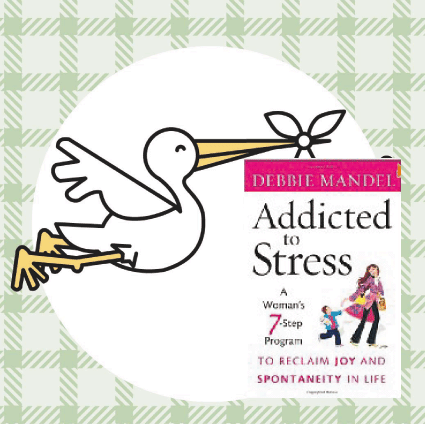|
|
Affirmation of the Week
As you step into the future,
bring along a spark of the past.
|
|
Weekly Wellness Radio Shows - Now on YouTube
Radio shows are now on YouTube. Simply click on the links below.
The Turn On your Inner Light Radio Show airs Tuesday evenings 7:00 to 7:30pm, on WGBB 1240AM in Long Island.
June 05, 2012 Show - Rick Hanson, Ph.D., a neuropsychologist and meditation teacher, Affiliate of the Greater Good Science Center at the University of California, Berkeley and author of Just One Thing. Learn how to strengthen, stimulate and even change your brain to improve your life.
May 29, 2012 Show - Barry Spector, a regular contributor to the Jung Journal: Culture and Psyche, and the online journal Mythic Passages and the author of Madness at the Gates of the City. A blend of myth and modern day madness, this book will shake up your self-awareness.
May 22, 2012 Show - Dr. Marsha Lucas, psychotherapist and neuropsychologist for over twenty years, writes a blog for PsychologyToday.com and is the author of Rewire Your Brain For Love. Learn the science behind mindfulness to improve your relationships.
May 15, 2012 Show - Jason Selk, PhD, director of mental training for the St. Louis Cardinals, an executive coach who worked with clients like Anheuser-Busch, Blue Cross Blue Shield, Charles Schwab, Wells Fargo, the NFL to name a few and author of Executive Toughness. Put your mind on your success and watch it soar.
Click archives for directory of past shows.
|
Health Tips of the Week
- Bias Found in Mental Health Drug Research Presented at Major Psychiatric Meeting. Patient care nationwide may be affected when research on medications contain only ‘good news’ – especially when the research is industry-funded.
- Physicians might be surprised to learn their patients’ primary goals for discussing health information found on the Internet. A new study in the National Communication Association’s Journal of Applied Communication Research shows that most cancer patients want to obtain more information or advice from their doctors or verify the accuracy of the information they read online.
- A study to evaluate birth control methods has found dramatic differences in their effectiveness. Women who used birth control pills, the patch or vaginal ring were 20 times more likely to have an unintended pregnancy than those who used longer-acting forms such as an intrauterine device (IUD) or implant.
- 72% of teenagers participating in a study experienced reduced hearing ability following exposure to a pop rock performance by a popular female singer.
- Florida State University announced today the availability of a new medical device that uses musical lullabies to help premature babies overcome one of their greatest growth hurdles. The innovative device is known as the Pacifier Activated Lullaby (PAL).
- Pregnant women may have added incentive to bulk up on broccoli and eggs now that a Cornell University study has found increased maternal intake of the nutrient choline could decrease their children’s chances of developing hypertension and diabetes later in life.
- Not only is it safe for people with asthma to exercise, but doing so could reduce their risk of asthma symptoms or attacks according to a new evidence review in The Cochrane Library.
- A study in the American Journal of Preventive Medicine found that the longer people drive to work, the more likely they are to have poor cardiovascular health. "This is the first study to show that people who commute long distances to work were less fit, weighed more, were less physically active and had higher blood pressure," said Christine M. Hoehner, a public health professor at Washington University School of Medicine in St. Louis and the study's lead author. "All those are strong predictors of heart disease, diabetes, and some cancers."
- A new study suggests that using cholesterol-lowering medications known as statins after having a stroke may increase the likelihood of returning home and lessen the chance of dying in the hospital. The research is published in Neurology.
- Sugar makes you stupid. A new UCLA study is the first to show how a diet steadily high in fructose slows the brain, hampering memory and learning--and how omega-3 fatty acids can minimize the damage.
|
|
Article of the Week
7 Ways to Dramatically Improve Your Attention Span
Technology overload has led to multi-tasking which has given most of us a micro-attention span – even doctors. Have I got your attention now? It’s time to slow down and focus with true intention in order to restore the balance between moving forward and losing the lessons of the past. Besides you will reap another great benefit: You will lower your stress levels.
Holly Finn’s “How to End the Age of Inattention” in the Wall Street Journal describes Yale University’s art course for first-year med students. These med students have to take a museum course to learn to look at paintings closely, cultivating an eye for the details. The class isn’t about art appreciation, but rather standing back and studying an artwork from different perspectives – what do you see after first glance, second glance and third glance? The hope is to make doctors better diagnosticians by really observing a patient and not just reading his laboratory markers. Medicine is not only a science, but an art as well. A patient’s life might be riding on a hunch – just watch a House rerun.
more
|
Addicted to Stress: A Woman's 7 Step Program to Reclaim Joy and Spontaneity in Life
|
|
|
Stress will always land on your doorstep, but you don’t have to constantly open the door. It’s time to build immunity to external pressures and cultivate an inner peace which does not depend on outside influences. Shed that endless to-do list. Leave the straight lines of your personality to enjoy the surprising detours life has waiting for you.
|
|




